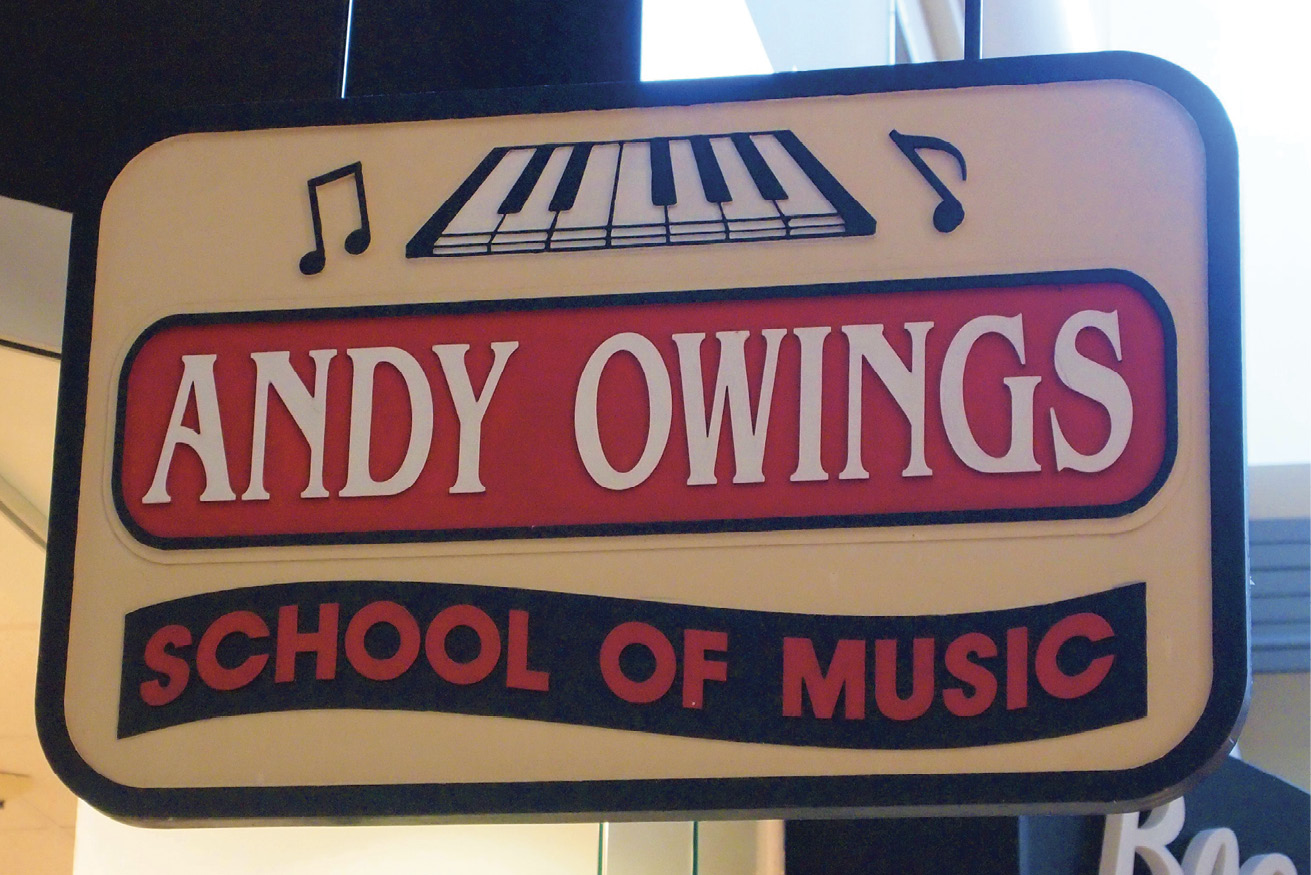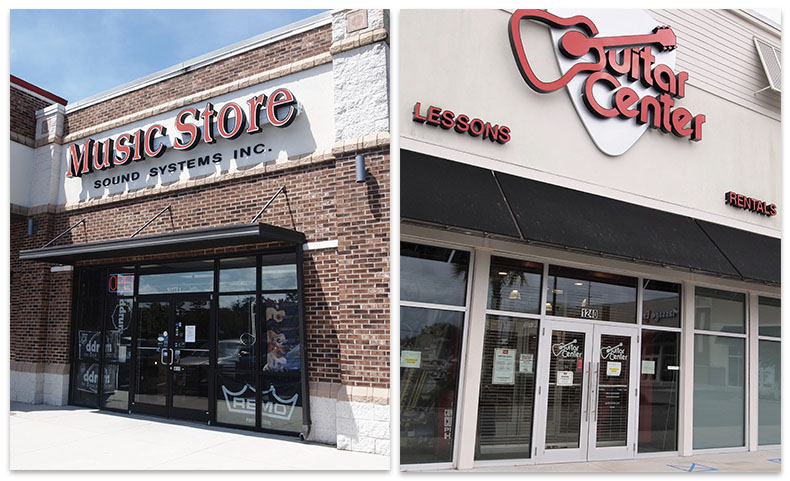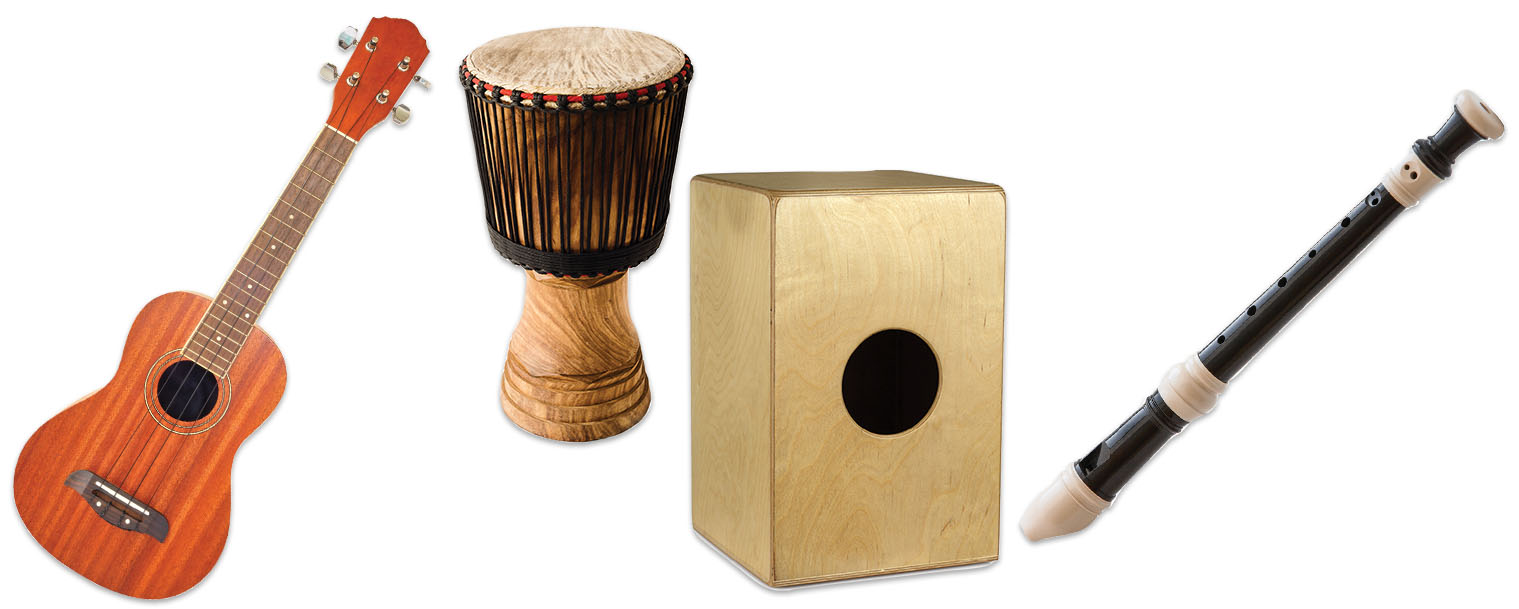How to Become the Musician You’ve Always Dreamed of Being

So you want to be a rock ‘n’ roll star?
Those of us who learned to play a musical instrument in the days when classic rock was in the current top 40 had to do it the old-fashioned way: jam with and learn from people who were better than us. The other option—the preferred option— was to take lessons.
Today’s would-be rock stars, front porch pickers, R&B keyboardists, drummers or bluegrass fiddlers have many more options awaiting them, including the tried and true professional instruction, along with an explosion of internet-related learning options. Today, countless thousands of free DIY YouTube videos and online pay-per-lesson streaming sources, designed for the beginner to the advanced, all add another dimension to learning the craft.
Of course, the answer to the age-old question, “How do you get to Carnegie Hall?” remains the same: practice, practice, practice.
For anyone of nearly any age looking to nurture dormant musical interests or feed their budding melodic hunger, we scoured the Grand Strand for instructional options, including lessons with a one-on-one instructor, music schools, and a few of the online options as well. In the era of COVID, the practicality and availability of taking one-on-one lessons at music stores or even with some private instructors changes daily, but don’t let that stop you. Here’s what we found to get you started.

The name Andy Owings has long been synonymous with music along the Grand Strand. The family-owned business started in 1975 in the old Myrtle Square Mall and moved to Coastal Grand Mall in 2004.
Selling a wide variety of instruments to professionals and hobbyists, Owings officially opened the Music School in 2015. Here, professionals offer instruction on just about any stringed instrument imaginable, as well as piano, organ and drums. Individual instructors set their own rates and make their own schedules, but the average cost is $30 per half-hour lesson. The Music School sits adjacent to the music store inside the mall. For more information, call Hari Wundarto at (843) 839-1505.
Sound Systems Inc.
For about 20 years, Joey O’Neal, owner of Sound Systems Inc., has offered instrument sales, service and installations to the community. At 3702 Dick Pond Road in Myrtle Beach, O’Neal provides an extensive free list of instructors he recommends to interested parties, and you’ll find some pretty sweet instruments for sale, too. Stop by or call (843) 293-5883.

Guitar Center
Opening its North Myrtle Beach location (1240 U.S. 17 N.) in 2019, this full-service music store also hosts Guitar Center Music Academy, its teaching division. Here you can learn the art of recording, DJing and vocal instruction, as well as instruction on most musical instruments. Packages start at $100 per month for four 30-minute lessons. For more information, call (843) 249-9293.
Wayne Cockfield
A Guitar Institute of Technology graduate, Cockfield has been teaching the guitar since 1980, and here along the Grand Strand since 1994.
“Teaching has always been my main source of income,” he said from his Myrtle Beach home and teaching studio.
He once taught at Coastal Carolina University as a teaching assistant and is the former Music Director of the Myrtle Beach Community Church. Pre-pandemic, Cockfield had 20 to 30 steady students, and as of press time is teaching around 12 to 15 students each week.
“I’ve done the online FaceTime thing,” he said, “but I don’t like it much. One-on-one is much better.”
Cockfield, who is especially proficient as a jazz guitarist, performs every Saturday evening at Crepe Creation Cafe in The Market Common, but teaching is his bread and butter.
His current roster of students includes a 6-year-old learning the ukulele and a 70-year-old learning the guitar, as well as 10-year-old Lyla Bridges, in her second month of lessons.
Lyla’s mother, Jan Bridges, sits patiently through the 30-minute lesson while another child is at gymnastics. “I think she’s really going to pick this up,” said Bridges. “Lyla says she wants to learn to play well. She’s very smart; my dad plays and my sister plays.”
Cockfield asks his young student, “Do you remember the D7 chord from last week?” Lyla plays it without hesitation. “I always ask ‘What do you want to get out of the lessons?’” said Cockfield. “Or they’ll tell me ‘I want to play like Eddie Van Halen.’ Often I have to help them figure out what they want.” For more information on lessons, call (843) 450-3911.
Chris Lanier
“I’ve lived out a lot of my dreams,” said Lanier, who for a short time was a professional wrestler and a radio sports commentator, and who is currently working as a musician and guitar instructor.
Lanier has also played guitar with local Top 40 band Chocolate Chip & Company since 2014. Having taught guitar much of his adult life, Lanier says he works with students individually to determine their desires and the best teaching methods.
Jerry “Kosmo” Sandwick, 44, stopped in for a guitar lesson at Lanier’s Myrtle Beach home recently. He’s been studying with Lanier for more than seven years and hopes to perform as a soloist when he feels proficient enough to hit the circuit. Sandwick plays bass guitar and had played a little guitar before taking lessons.
“I’d always played by ear and memorization, totally clueless,” said Sandwick, “but I figured it was time to really know what I was doing. Music translates to all areas of life.”
Sandwick may be heard on a midday shift at radio station Energy 92.1. He also works part-time as a news content specialist for TV station WMBF.
Dino Capone
Well known to area musicians and live music fans for more than two decades, drummer Dino Capone successfully ran Dino Capone’s School of Rock for many years, teaching kids, mostly, how to perform in a rock ‘n’ roll band. Though the school is now closed, Capone still teaches drum students at his home or travels to his students’ homes for lessons on weekends. Capone performs with the top 40 act City Lights. For more information on lessons, call (843) 602-5063.
Online
With internet connectivity extending now to virtually everyone’s smartphones, tablets and home computers, musicians of all abilities turn to the web for instruction. I personally learned to play the guitar part to Paul McCartney’s “Blackbird” by watching a YouTube video.
Online videos are probably better suited to musicians who already enjoy some proficiency, but there are free and low-cost options for beginners, too. A recent Google search yielded 72 million hits to the query “guitar lessons online.” Start with your own Google search and try out a few instructors to see if this option works for you.
Instrument Playability
A note to would-be guitarists: An oft overlooked but vital component of learning to play the guitar is the quality and playability of the instrument. That’s not to say that you must spend thousands on a new guitar. Many working professionals play $200 guitars, while others will only perform with the very best. But what all guitars must have in common, regardless of their price, is being “set up.” That is, the fine art of adjusting the guitar so that the strings are the proper distance from the neck, and that the nut and bridge are placed correctly.
A guitar that’s out of whack is vastly harder, if not impossible, to learn on and play. Most music stores and instructors can help ensure an instrument’s playability, as well as repairmen like luthier Johnny “Guitar” Sparks, a local fixture in repair and performance for decades. You can reach him at (843) 902-9195.
The advice on “playability” extends to all instruments, not just guitars. Let a professional look at, clean, adjust and repair (if necessary) any instrument on which you wish to learn.
There are many (possibly dozens) of qualified instructors along the Grand Strand who we’ve not mentioned here. Asking a proficient musician for their recommendations is also a good place to start. Good luck in the pursuit of your musical dream, one that can offer hours of satisfaction, even if you never leave your own front porch.

Three easy instruments that won’t break the bank (or your spirit)!
Always wanted to wail on the guitar, croon on the saxophone or dash the devil on your fiddle? It’s human to want to go from zero to 100 without putting in the work—instant gratification and all. The reality is, as you already know in your heart, that it can take years to bring yourself to a proficient level on these aforementioned, difficult-to-play instruments. Here are three, however, that can yield satisfying results much faster and get you on the road to performing for friends, family or in the concert hall.
1. The Ukulele
Introduced to Hawaiians in the 19th century by Portuguese immigrants, this four-stringed small and inexpensive instrument is known for its pleasant tone and easy chords and is perfect for simple accompaniment. Experts such as Jake Shimabukuro have taken its performance to astounding heights.
2. The Djembe or Cajón
Like to beat your hands on the table in time to your favorite tunes? You may be a percussionist at heart. While you can spend thousands on a high-quality percussion setup, with the recent popularity of the African hand drum (the djembe) or the wooden box of Afro-Peruvian origin, the cajón, it’s easy and inexpensive to learn the art of percussive accompaniment.
3. The Recorder
Many might count the recorder as the first instrument they ever played, as it was once a staple of public school music classes. Very inexpensive and very easy to play, the recorder, maligned by many, is, after all, the first instrument to solo in Led Zeppelin’s classic “Stairway to Heaven.”